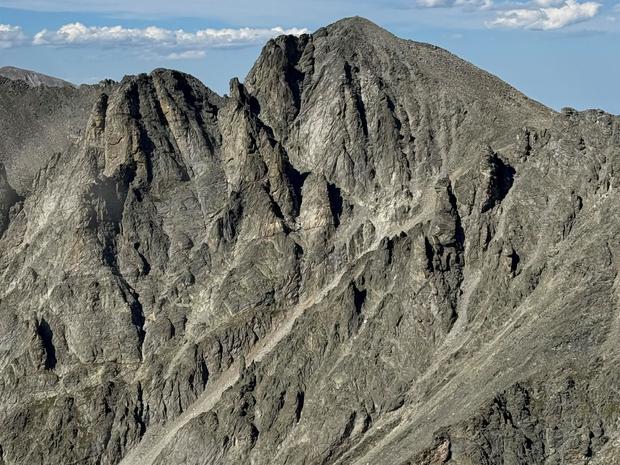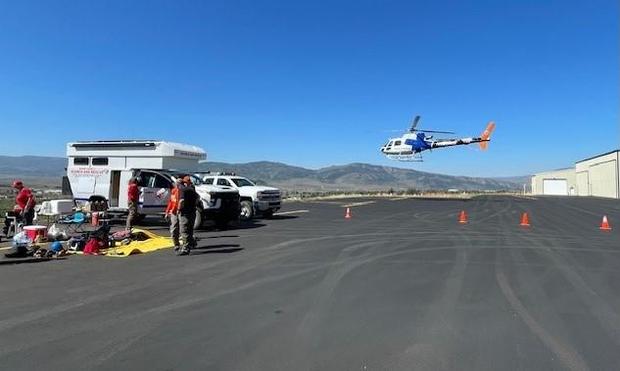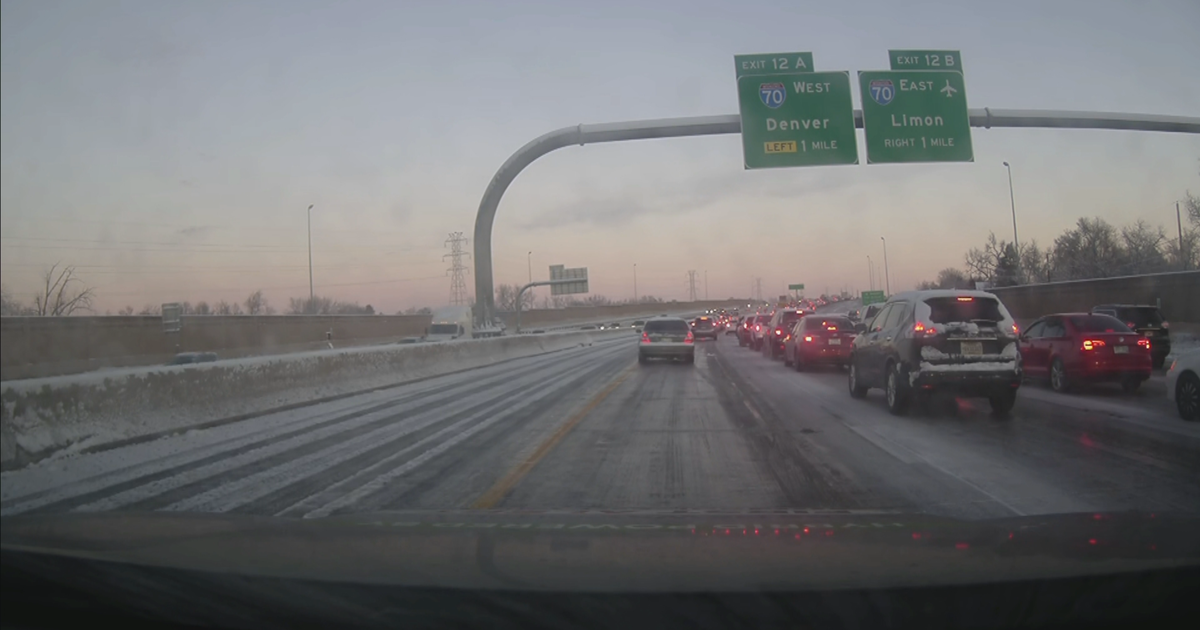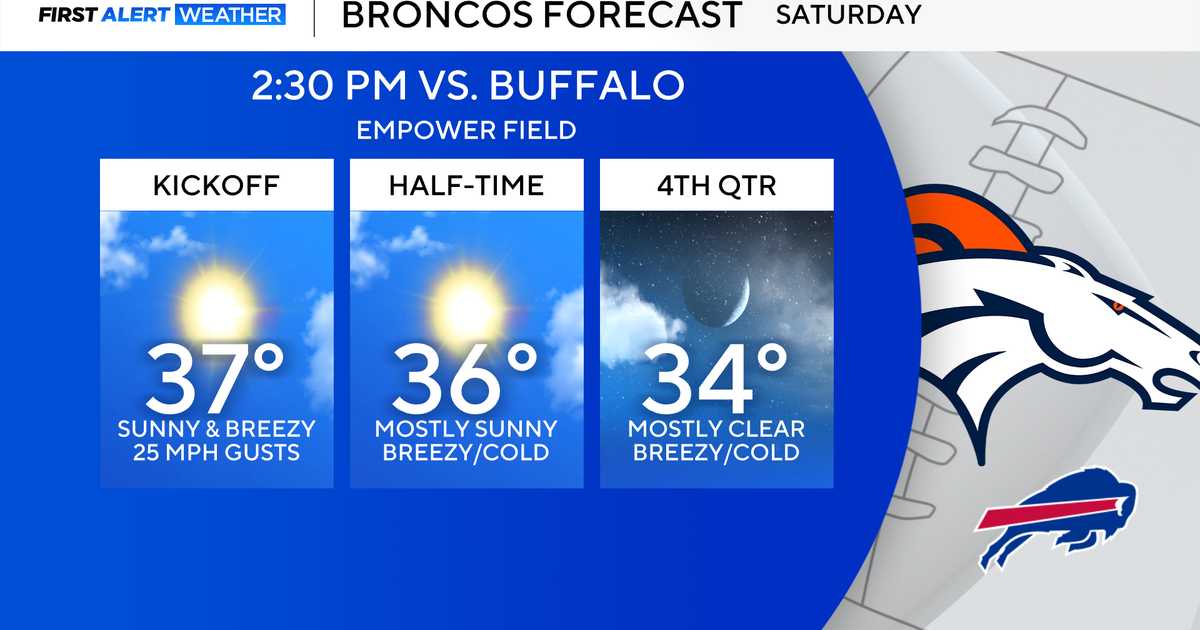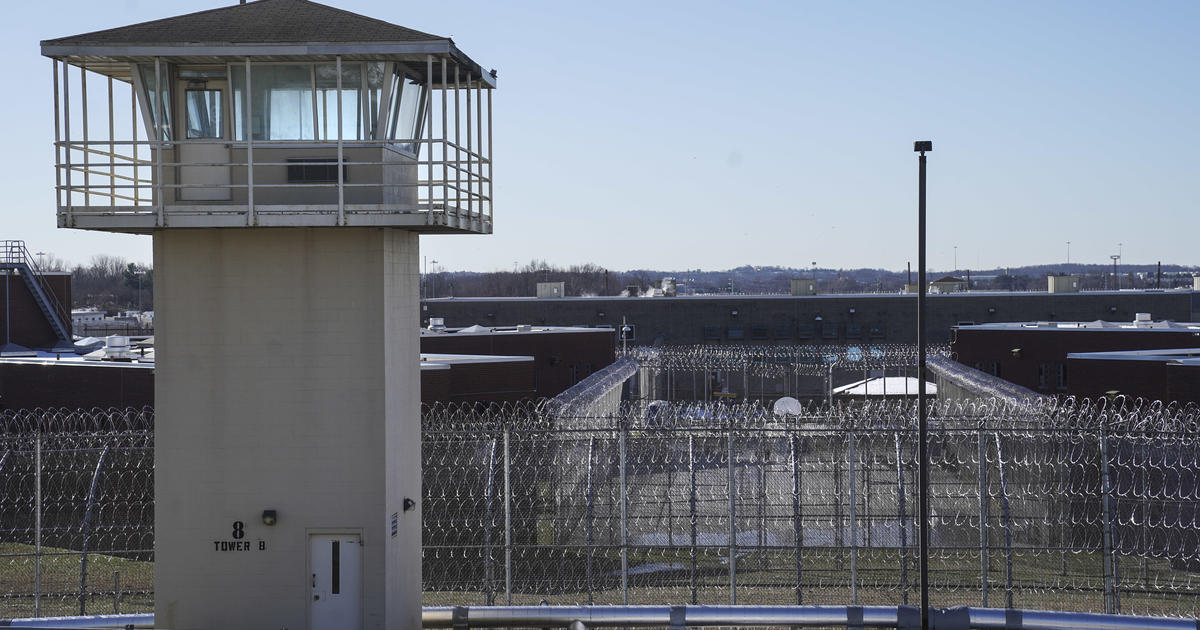Colorado hiker's body deemed "too dangerous" to recover
A 31-year-old Colorado man's body lies in place at elevation after rescuers twice tried to reach it but determined the location put their own safety at too much risk.
The man fell 300-400 feet while hiking and climbing on Arikaree Peak, a remote and rarely visited 13,164-foot mountain in the Indian Peaks Wilderness west of Boulder. Arikaree's summit straddles the Continental Divide and boundary separating Boulder and Grand counties. The man started his hike from a Boulder County trailhead but fell into the Grand County side, per authorities.
Authorities did not release the man's identity but did say he's from Boulder and that they are in contact with his family.
One rescuer called the decision to halt the recovery operations "agonizing" for the rescue teams and "gut-wrenching" for the family.
"The Golden Rule of mountain rescue is not to make the situation worse," Dale Atkins of Alpine Rescue Team told CBS News Colorado. "As to Arikaree, we have to practice what we say."
Grand County personnel were first notified of the accident Aug. 28, according to the sheriff's office there. Teams from both counties, state agencies, and rescue aircraft attempted to recover the body but collectively called it off due to deteriorating weather conditions and dangerous terrain.
A doctor aboard one of the aircraft, a helicopter, did observe the body and determined the man had not survived the fall.
Rescue teams gathered nine days later to make a second attempt. However, together, they decided a safe mission, even in favorable weather, could not be accomplished.
"Our teams made every possible effort to safely reach the site of the fall, but conditions remain too dangerous for us to proceed," stated Greg Foley, Grand County Search and Rescue Field Director. "The safety of our personnel must come first."
"Many mountains along the high peaks of the Front Range are known for their rugged east sides and their gentle west-facing slopes, but Arikaree is the opposite," Alpine Rescue Team's Atkins continued. "On the west, Grand County, side, the mountain is shredded with steep and ragged gullies and towering rock fins and pinnacles.
"As beautiful as the mountain is, the rock is savagely loose, and the man's body is in the middle of of a steep and crumbling 1500-foot tall face."
Only a few rescue personnel were placed on the mountain to explore the area and judge the terrain, per Atkins. But many more experts were involved in deciding against the recovery.
Grand County Search and Rescue, the Grand County Sheriff's Office, Boulder County Emergency Services, Colorado Hoist Rescue Team, Rocky Mountain Rescue Group, Colorado Search and Rescue, the Colorado Air National Guard, and the Alpine Rescue Team attempted the first recovery. The second attempt was comprised of Grand County Search and Rescue, the Alpine Rescue Team, Rocky Mountain Rescue Group, and a Med Evac helicopter.
"This recovery effort is not hampered by technical and logistical challenges," Atkins added. "Rather, it is the excessive risk faced by rescuers that thwarts our efforts. Mountain rescuers are risk takers, but we are not risk seekers. In high risk operations we have emergency plans to rescue a rescuer. But on Arikaree, we haven't been able to put together an effective and timely back-up plan should a rescuer get hurt. The raggedness of the mountain prevented crews from Colorado Hoist Rescue Team from retrieving the body, which also means they could not rescue a rescuer in the same location.
"While we appreciate luck, we never want to rely on luck to keep ourselves safe. Unfortunately, this man's body is in a spot where we cannot effectively manage the dangers to keep rescuers safe."
Arikaree is one of five mountains whose summits lie within the City of Boulder's high country watershed. They are off-limits to the public and trespassers can be ticketed by city rangers monitoring the reservoirs in the drainage immediately to the east of the peaks.
The Boulder County Sheriff's Office confirmed the male climber left a Brainard Lake trailhead prior to his fatal fall.
RELATED Wisconsin climber Kelly McDermott's body to remain on Capitol Peak indefinitely (2021)
Atkins referred to the Boulder man as a "scrambler," a term describing hands-on climbing of less technical terrain without ropes.
"I am confident in my thinking that he was not reckless. I suspect he was up there because he is a lover of mountains. I am assuming he had a fair amount of experience, and probably a lot of experience in the mountains. One has to have that just to get into this type of terrain," Atkins stated. "Everyone who ventures off-trail in the high country knows of and has experienced loose, unstable rock. With time and experience one learns to read the rock and terrain, so they can travel on rugged slopes. But sometimes a step or pull on the wrong rock — that looks just the same as every other rock on the mountain — can cause the rock to slide or pull out resulting even the best to take a tumble or fall."
